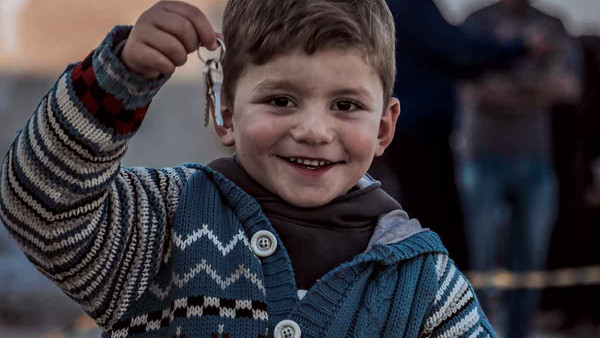
Zakat al-Mal in Ramadan - Its Virtues and Importance
Give Your Zakat Today and Support the Needy During This Blessed Month through: Zakat al-mal 2025
Or through the Zakat al-Mal campaign for our people in Gaza.
Ramadan is a time of generosity and kindness. Muslims eagerly engage in acts of charity, seeking the multiplied rewards promised by Allah. One of the most significant obligations in Islam is Zakat al-Mal, a fundamental pillar that ensures wealth is shared with those in need.
Although Zakat al-Mal is not restricted to a specific time, giving it during Ramadan carries immense rewards. It is a golden opportunity to ease the suffering of the poor and gain countless blessings.
In this article, we will explore the virtues of giving Zakat al-Mal in Ramadan, its conditions, and its significance in Islam.
What is Zakat al-Mal?
Zakat al-Mal is a mandatory charity where a Muslim donates 2.5% of their wealth if it has reached the Nisab (minimum threshold) and remained in their possession for one lunar year. It applies to savings, trade assets, agricultural produce, and livestock.
The purpose of Zakat al-Mal is to purify wealth, cleanse the soul from greed, and promote social justice.
Allah says in the Qur’an:
"And establish prayer and give Zakat." (Surah Al-Baqarah: 43)
If every eligible Muslim gives their Zakat, it can help bridge the gap between the rich and the poor, reduce financial hardship, and strengthen social bonds through compassion and generosity.
The Virtues of Giving Zakat al-Mal in Ramadan
- Multiplied Rewards: Since Ramadan is a time when good deeds are greatly rewarded, giving Zakat al-Mal in this month brings immense blessings. The Prophet Muhammad (peace be upon him) said:
"The best charity is that given in Ramadan." (Tirmidhi)
- Supporting the Needy in a Critical Time: During Ramadan, the need for food and essentials increases. By giving Zakat al-Mal, you help provide meals and necessities for struggling families.
- The Last Ten Nights and Laylatul Qadr: The last ten nights of Ramadan, especially Laylatul Qadr, are the most spiritually significant days of the year. Giving Zakat during this period ensures multiplied rewards and divine mercy.
Conditions of Zakat al-Mal
To be obligated to give Zakat al-Mal, a person must meet the following conditions:
- Islam: Zakat is only required from Muslims.
- Reaching Nisab: A Muslim must possess wealth equal to or exceeding 85 grams of gold or 595 grams of silver.
- One Lunar Year (Hawl): The wealth must remain above the Nisab threshold for a full Islamic year.
- Debt-Free Wealth: If a person has outstanding debts, they must deduct them from their total assets before calculating Zakat.
How to Calculate Zakat al-Mal?
Zakat is 2.5% of the total wealth that meets the above conditions.
For example, if a person has saved $10,000 for a full lunar year, their Zakat would be:
$10,000 × 2.5% = $250
To simplify the process, you can use the Zakat Calculator on the Molham Team website.
Why Giving Zakat in Ramadan is Crucial?
- Helping the Poor Celebrate Eid with Dignity: Zakat ensures that underprivileged families can buy food, clothes, and essentials for Eid celebrations.
- Purifying Wealth and Soul: Zakat purifies one’s earnings from any impurities and fosters gratitude and humility.
"Take from their wealth a charity by which you purify them and cause them to increase." (Surah At-Tawbah: 103)
Give Your Zakat Today and Make a Difference!
Your Zakat al-Mal can change lives. Take this opportunity to help those in need and earn the countless blessings of Ramadan.
FAQs:
1. Is it mandatory to give Zakat in Ramadan?
No, Zakat al-Mal is due after one lunar year has passed on eligible wealth. However, giving it in Ramadan brings multiplied rewards.
2. Can I distribute my Zakat among multiple recipients?
Yes, Zakat can be given to multiple eligible recipients, including the eight categories mentioned in the Qur’an.
3. Can I give Zakat in advance?
Yes, it is permissible to pay Zakat in advance if there is an urgent need, as practiced by the Prophet Muhammad (peace be upon him).
4. What is the difference between Zakat al-Mal and Zakat al-Fitr?
- Zakat al-Mal: A fixed percentage (2.5%) due on wealth that meets the conditions.
- Zakat al-Fitr: A smaller, separate charity given at the end of Ramadan on behalf of each Muslim, regardless of wealth.

